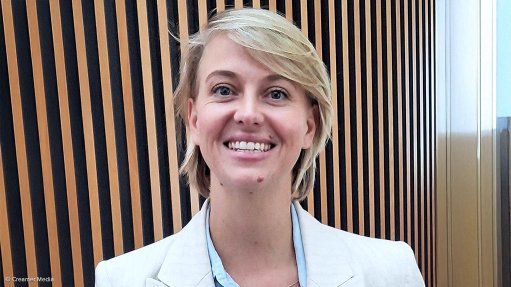South Africa’s new electronic visa system to turbocharge tourism, crush identity fraud, Schreiber promises
The Department of Home Affairs (DHA) has approved more than 10 000 visa applicants through its new electronic travel authorisation (ETA) system already, Home Affairs Minister Leon Schreiber has revealed.
Speaking at The Europe House – Ambrosetti (TEHA) CEO Dialogue on Southern Africa, on November 21, in Johannesburg, he said the ETA’s soft launch a few weeks ago saw the system being made temporarily available to four G20 member countries whose citizens require visas to visit South Africa – namely China, Mexico, Indonesia and India – who were visiting South Africa for G20-related purposes.
He assured delegates at the dialogue that the system, which could deliver instant visa outcomes through machine-learning technology, would get an official full-scale launch soon.
Schreiber confirmed that ETA counters were now live at the OR Tambo and Cape Town International airports, using an upgraded movement control system linked to biometrics.
“If you are travelling internationally, you will now see our new cameras and the signage of the ETA, and the first travellers have already been processed through this new system,” he said.
Schreiber explained that the ETA enabled travellers to visit a website where they could create a profile with an email address and a contact number. They could then scan their passport using their smartphone, whereby machine-learning checks were run on the passport to verify it and prevent fraud.
The user would then upload a selfie, which was verified against the photo on the passport to ensure it was the same person.
When the traveller arrived at the airport, another round of biometric verification was carried out, whereby they looked into the camera to ensure that the person who arrived was the person who received the approval and authorisation.
“What is really important, from a security perspective, is that South Africa previously did not systematically record biometrics for every foreigner who enters our country. We have biometric records for citizens, not for foreigners. The ETA is finally rectifying that, and it enables us to track overstays, for example, and other visa violations in ways that we could never do before,” Schreiber said.
He said that, over the next few weeks, the ETA would be opened up to all tourists from China, Mexico, Indonesia and India, and then to tourists from countries around the world who needed visas to visit South Africa.
“The ETA is going to turbocharge tourism at a scale that we have not seen in decades. Our next bottleneck is going to be that we don't have enough flights from some of these countries,” Schreiber quipped.
He said the intention was to expand the ETA to South Africa’s land borders as well, in an effort to close loopholes for discretion and corruption.
“It's very simple. If you arrive at Bulembu Bridge, Bombo, or any of our land borders, and your face does not match the biometrics that were uploaded for the ETA, the automatic gate will not open and you cannot bribe your way through a computer,” Schreiber noted.
He said the ETA would also be expanded to other visa categories as well.
“Our ambition is to build the most technologically sophisticated visa processing system in the world, because we want to use the ETA to automate other categories, like work visas and even all the way up to permanent residency and citizenship applications. That removes discretion, it removes the delay, it removes the inefficiency, and it removes the security risks that go with this area,” he said.
OTHER DEVELOPMENTS
Schreiber said the DHA had also turned its attention to identity theft and fraud, noting that these crimes imposed heavy economic and social costs on the country.
He explained that officials had developed a new digital partnership model with eight major banks because the financial sector, including insurers and other providers, was already linked to Home Affairs through the Online Verification Service (OVS).
“The problem we found there was that the OVS was not working. It was failing in 50% of cases. This forced banks and insurers to sometimes rely on identity documents, including the green ID book, instead of fingerprint or facial verification. So, what we did was to fix that system and make sure that it delivers reliable results instantly,” he said.
Schreiber said that the DHA was now working to use its existing integration with banks to add smart ID and passport applications to the same platform. This would allow applicants to enter a bank branch, input their ID number into a terminal, confirm their identity through facial recognition checked against the Population Register, and apply for the necessary documents on the spot.
He added that people would be able to choose whether to have their documents delivered to the bank branch or to their home, in much the same way as a bank card.
“You can just imagine the fundamental change from forcing everyone to go to a few Home Affairs offices, travelling great distances, standing in long queues, filling in pieces of paper, and then doing it all again just to collect a document, compared to this new system that we are building through partnership and through technology,” Schreiber said.
He confirmed that once this technological expansion was complete and once every South African citizen has access to a smart ID, government would cease to recognise the green ID book as a valid form of identification.
“There's a very simple reason for that: it is the most fraud-prone document on the African continent, because it has a physical photograph that can be swapped or manipulated. By doing away with that, we are going to save our economy billions in the fraud risk associated with it,” Schreiber said.
At the beginning of the year, there were still 18-million people who only had a green ID. However, Schreiber was proud that this number has been reduced to 16-million nearly 12 months later. At the current rate of about two-million a year, it would take another eight years to convert the rest of the green ID book holders to smart ID cards.
“It is a Herculean effort, but I think, through the collaboration we are seeing with the banking sector, that we can get there in a relatively short space of time, and that is going to deal with the challenges of identity theft and fraud in a very serious way,” he said.
Schreiber also highlighted the new digital ID system being developed by the DHA that he said would negate the need for physical documents for those who choose to use the system.
“It will not only give access to enabling documents in digital format on your smartphone or smart device, but it will also enable remote authentication through the same biometric verification technology that we have built for the ETA. The combination of decentralising access to physical documents and introducing digital ID is driving a new level of security in South Africa's identity management and financial systems,” Schreiber said.
Article Enquiry
Email Article
Save Article
Feedback
To advertise email advertising@creamermedia.co.za or click here
Announcements
What's On
Subscribe to improve your user experience...
Option 1 (equivalent of R125 a month):
Receive a weekly copy of Creamer Media's Engineering News & Mining Weekly magazine
(print copy for those in South Africa and e-magazine for those outside of South Africa)
Receive daily email newsletters
Access to full search results
Access archive of magazine back copies
Access to Projects in Progress
Access to ONE Research Report of your choice in PDF format
Option 2 (equivalent of R375 a month):
All benefits from Option 1
PLUS
Access to Creamer Media's Research Channel Africa for ALL Research Reports, in PDF format, on various industrial and mining sectors
including Electricity; Water; Energy Transition; Hydrogen; Roads, Rail and Ports; Coal; Gold; Platinum; Battery Metals; etc.
Already a subscriber?
Forgotten your password?
Receive weekly copy of Creamer Media's Engineering News & Mining Weekly magazine (print copy for those in South Africa and e-magazine for those outside of South Africa)
➕
Recieve daily email newsletters
➕
Access to full search results
➕
Access archive of magazine back copies
➕
Access to Projects in Progress
➕
Access to ONE Research Report of your choice in PDF format
RESEARCH CHANNEL AFRICA
R4500 (equivalent of R375 a month)
SUBSCRIBEAll benefits from Option 1
➕
Access to Creamer Media's Research Channel Africa for ALL Research Reports on various industrial and mining sectors, in PDF format, including on:
Electricity
➕
Water
➕
Energy Transition
➕
Hydrogen
➕
Roads, Rail and Ports
➕
Coal
➕
Gold
➕
Platinum
➕
Battery Metals
➕
etc.
Receive all benefits from Option 1 or Option 2 delivered to numerous people at your company
➕
Multiple User names and Passwords for simultaneous log-ins
➕
Intranet integration access to all in your organisation




















